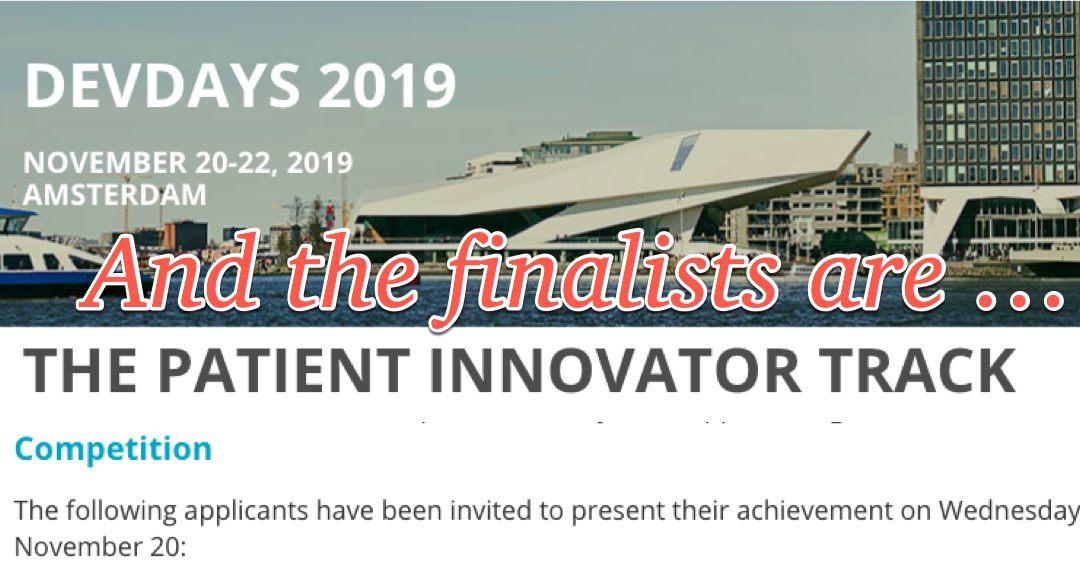This is a cross-post from my personal blog.
The organizers of the FHIR #DevDays conference next month have announced the four finalists who will come to Amsterdam to present their ideas to a panel of judges. I’ll copy/paste here from the conference’s Patient Innovator Track page:
The following applicants have been invited to present their achievement on Wednesday, November 20: [Alphabetically by presenter’s name]
- Ardy Arianpour, Seqster (app, pronounced “seekster”): “Solved Interoperability Through Patient Centricity” – combines EHR data, consumer genetics, and data from devices / wearables
- SPM member Brenda Denzler (@TheOrigBigScary): “Using readily available health monitoring devices to track and report real-time symptoms” – tracked and organized O2 and other data to convince her doctors they’d misdiagnosed her
- John Keyes (@JohnKeyes): blood disease patient – developed BloodNumbers app to track blood test results over time – focused and practical
- Francisco Javier Logrono, Foundation 29: “Health 29” (app) – Interoperable data platform for rare disease patients
At last: I.T. that’s focused on patient value, patient empowerment
Having been crusading for a decade to encourage data mobility for the benefit of the consumer, the patient, (not just the business needs of the “data holder”), I’m thrilled at this competition. At conference after conference, health IT people have talked about maybe someday trying to squeeze in some patient value, if it doesn’t get in the way of their quarterly work objectives.
In contrast to this, the HL7 FHIR organization said explicitly this June that #FHIR exists to serve patient needs. That shows up in the criteria developed for this competition:
Direct impact on the patient’s health or treatment Empowerment of the patient to take control Possible relevance for other patients, ideally as an app that might use FHIR someday Proven usage in daily life
Each of these finalists was chosen for patient empowerment through data, in a clearly identifiable way. And personally I’m thrilled that the four turned out to be two companies (apps) and two individuals, because that answers the too-common question:
What would patients even do with the data if they had it??
See, once medicine accepts that patients – people without medical training – really can get value (and even create value) from health data, it’s no longer defensible to keep their data from them. And that will enable real progress.
For more information on the conference and the competition see my previous post on the competition.







Recent Comments